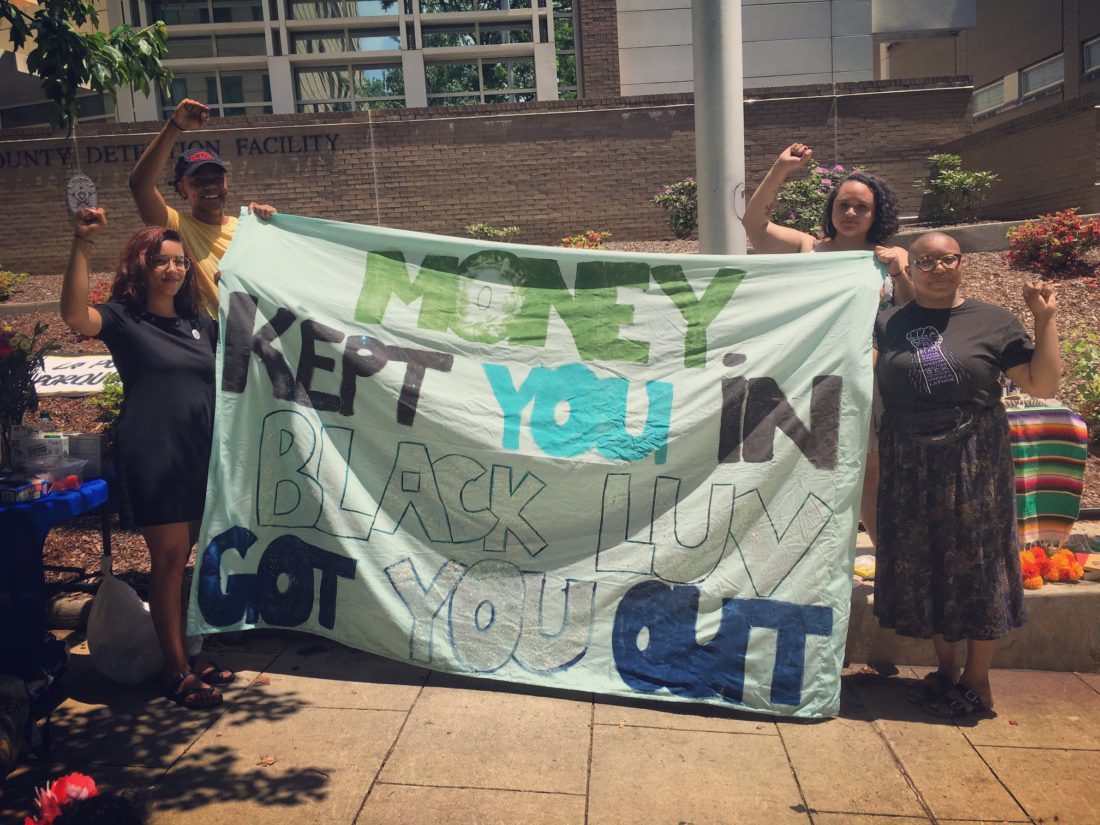In Western North Carolina, 2018 held numerous examples of the arts-infused actions aimed at collective liberation.
• On April 20, after weeks of raids on immigrant groups, members of Immigration and Customs Enforcement held a picnic in Hendersonville. A group of 60 protested the gathering accompanied by the loud and upbeat music of the Brass Your Heart brass band to enhance the impact.
• The Asheville Black Mamas Bail Out was part of a series of nationwide actions to raise awareness about the injustice of cash bail, specifically its impact on people of color and people of low income. On May 11, food, flowers and hand-painted banners were set up outside the jail by local members of Southerners on New Ground, showing community support for the women who were freed.
• Also in May, Word on the Street/La Voz de los Jovenes, a bilingual online arts and culture magazine created by and for youth, hosted Creative Voices for Social Justice. The evening featured poetry written in response to paintings by Joseph Pearson of people of color in our community.
• A City Budget Teach-In at City Hall on June 11, coordinated in part by BeLoved Asheville, raised awareness about equity issues with the city of Asheville’s budget. Using artistic signage and provocative costuming — including a giant-headed Mr. Moneybags — the teach-in called for a “People’s Budget.”
• Southside Rising for Justice, held at the Arthur R. Edington Center on July 14, showcased the music, food and dance of the historically African-American Southside neighborhood. It was a day of bold resistance to gentrification, providing a platform for community pride channeled toward strategies for social and economic justice.
• The inaugural RAD Fest, Oct. 13 and 14 at The Grey Eagle, broke the mold of the majority of music festivals by primarily featuring female, black, brown, queer and gender-nonconforming artists. The festival raised money for Our VOICE and took intentional steps to create a safe and welcoming space.
• On Dec. 1, the Center for Participatory Change hosted a Gathering of Speakers of Native Languages in Robbinsville. Speakers of Cherokee, Hñähñu, and other native languages from the Americas shared experiences and discussed strategies for language preservation, reclamation and revitalization.




Before you comment
The comments section is here to provide a platform for civil dialogue on the issues we face together as a local community. Xpress is committed to offering this platform for all voices, but when the tone of the discussion gets nasty or strays off topic, we believe many people choose not to participate. Xpress editors are determined to moderate comments to ensure a constructive interchange is maintained. All comments judged not to be in keeping with the spirit of civil discourse will be removed and repeat violators will be banned. See here for our terms of service. Thank you for being part of this effort to promote respectful discussion.